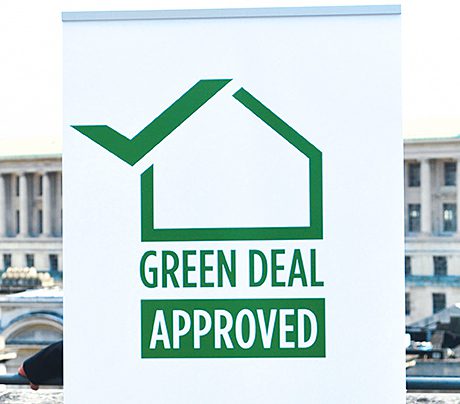Government figures reveal there are no “live” plans yet

FIGURES released by the Department of Energy and Climate Change (DECC) on 27 June suggest a slow start for the government’s Green Deal, with no properties yet signed up for what is known as a “live” green deal, whereby works have been undertaken to improve the energy efficiency of a home and details of the repayments on electricity bills have been passed to its energy supplier.
The figures – the first statistics to be released that measure the progress of domestic uptake of the policy – revealed that over 38,000 Green Deal Assessments had been lodged as of 16 June 2013, whereby a suitably qualified assessor has visited a property to see what work can be done. In terms of actual Green Deal Plans, 245 were in the system. Only four of these households were ‘pending’, or looking to finalise Green Deal Plans, while the other 241 were new plans. And none have yet had completed works undertaken. At first sight the figures strike a pessimistic note for the government’s flagship energy saving policy.
Climate minister Greg Barker said the reason for the small number of GD plans at this stage was down to the fact that so few companies had so far been set up to provide finance, the first wave of GD finance having only become available in recent weeks. He said: “But there are another 50-plus companies hard on their heels that we expect to come into the market in the next few few months so by the end of the year the Green Deal Finance Company say it could be as many as 60. Now that would be transformational.”
A related scheme, the Energy Company Obligation (ECO) differs from the Green Deal in that households are not required to take out loans to fund the improvements. Instead energy companies are required to fund the addition of energy-saving measures for those on lower incomes. This appears to have fared better, with more than 80,000 households having had energy efficiency upgrades.
The Green Deal also supports the issuing of cashback vouchers, to provide funding for the installation of measures. Around £125 million has been ear-marked by the Chancellor (certainly until March 2014) to provide these cashbacks, allowing households to obtain them, to the tune of up to £1000 in some cases, although there are at present barriers against their being issued to small businesses.
The DECC figures stated that 5,118 of these cashback vouchers had been issued, with 968 of them having been paid following the installation of measures. It was also revealed that the majority – 99% of them – had been for boiler replacements, with just one of them for insulation.
The figures also showed that 206 Green Deal Assessor organisations had been accredited by 16 June, in addition to the 1,798 GD advisors employed by them.
A slow start also seems apparent on the supplier side, with only one of the so-called “Big Six” – British Gas – having announced a national programme. Some energy companies have complained about the complexity of getting the necessary IT systems in place to support the additions to billing and other aspects of the policy.
What is the Green Deal?
Launched by DECC on 1 October 2012, the Green Deal is a scheme whereby households and businesses are able to borrow money to allow the installation of energy saving measures. The loans are repaid through energy bills, part of the rationale being that savings on energy bills must be expected to outweigh the cost of repayments. This is described as the ‘Golden Rule’ which limits the amount of finance which a household can obtain to a sensible amount.
The energy saving home improvements covered include changes to heating and ventilation, including the installation of things like biomass boilers and solar panels. There is also provision for building fabric changes, such as the addition of loft insulation, and changes to lighting, heating and windows.
Before any work can be carried out there has to be an assessment, at a cost of £150 or more, to determine what if any work can be done. Various different organisations can be authorised to do this, including energy companies, DIY stores and local tradespeople.
The loans became available on 28 January of this year in England and Wales, and on 25 February in Scotland.







